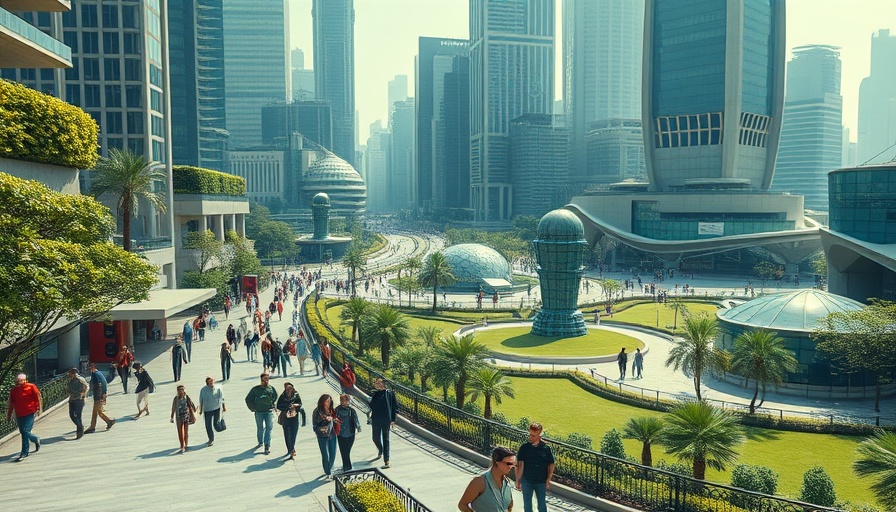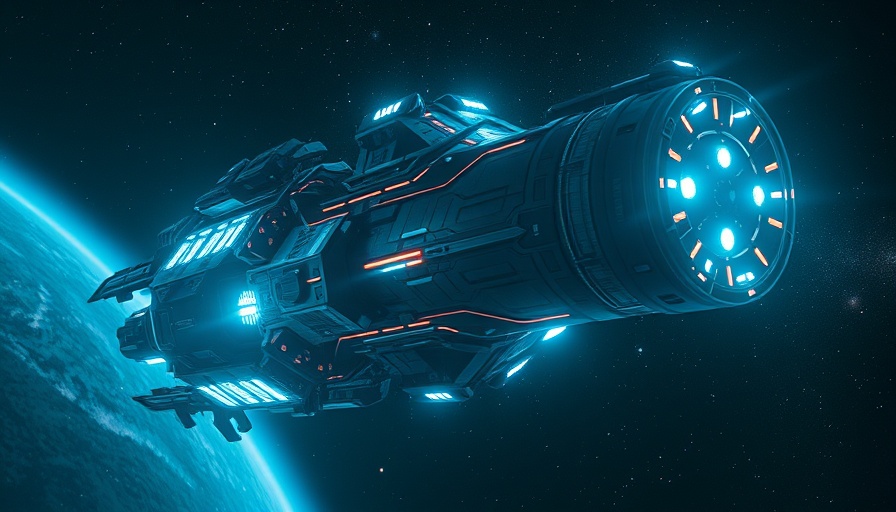
Imagining a Future Beyond Capitalism
The notion of a post-capitalist world might seem daunting, yet it also opens doors to groundbreaking possibilities. In a video titled 10 Ways Your Life Changes After Capitalism Ends, various scenarios illustrate how life could radically transform in the era beyond capitalism, driven primarily by advancements in technology.
In 10 Ways Your Life Changes After Capitalism Ends, the discussion dives into transformative possibilities for daily life, exploring key insights that sparked deeper analysis on our end.
1. Envisioning a Post-Scarcity Society
The concept of a post-scarcity society hinges on advanced technologies like artificial intelligence (AI) and molecular manufacturing, which could render basic resources readily available. Imagine a world where the essentials—food, shelter, healthcare—could be produced with minimal labor and almost no cost. In such a society, suppressed creativity and human relationships could flourish as people are liberated from the relentless struggle for survival. While this is an exciting perspective, we must consider who controls distribution networks in this new paradigm. The risk of technological misuse and the importance of a robust governance structure cannot be overlooked.
2. The Role of Decentralized Economies
With capitalism's decline, decentralized AI-governed economies might rise as viable alternatives to traditional capitalist frameworks. These systems would rely on blockchain technology and autonomous networks to facilitate everything from resource allocation to labor management. By minimizing human intervention, they aim to create fairer and more efficient economic distributions. The shift toward decentralized technologies might arise due to a growing discontent with conventional institutions, signaling a trust in systems designed by collective input.
3. The Dark Side: The Rise of Technofudalism
While some envision an egalitarian utopia following capitalism's end, others warn of a potential descent into technofudalism. This ominous scenario describes a hierarchical society dominated not by wealthy landowners, but by tech magnates and algorithms that dictate access to resources. Here, citizens may rely on corporate platforms for basic needs, resembling a digital feudal system where rights and sustenance hinge upon social behavior or compliance to a tech regime.
4. Universal Basic Income: A Safety Net
In a world where automation dominates the job market, universal basic income (UBI) could emerge as a crucial stabilizing force. By providing individuals with a guaranteed income, UBI ensures that basic needs are met even when traditional jobs disappear. However, as appealing as this may sound, the implementation of UBI would require careful consideration to avoid inflation and dependency pitfalls. Cultivating a culture of purpose and community involvement in place of work-driven identity is key.
5. A Shift in Corporate Dynamics
Another transformative possibility is the end of corporate abuse. Without profit-driven motives, businesses might evolve to prioritize public safety over shareholder wealth. This adjustment could drive more equitable resource management and transparency. Yet, significant challenges remain; dismantling established corporate structures would necessitate heightened accountability and innovative approaches to measure success.
6. The Demise of Corporations and Stock Exchanges
As the market shifts toward more collaborative models, the very foundation of corporations and stock exchanges may erode. Transitioning to decentralized autonomous organizations could help refocus efforts on collective well-being rather than individual profit. The aspiration for cooperation in economic exchanges might enable innovation to flourish in more inclusive environments, provided the shift is managed prudently.
7. The Bureaucratic Challenge
On the other hand, this transition might prompt government bureaucracies to expand unchecked, leading to inefficiencies. Without the competitive pressure characteristic of capitalism, public systems could become unwieldy. This highlights the necessity for an adaptable governance strategy capable of balancing efficiency with fairness.
8. Entrepreneurs in a New Era
The motivations of entrepreneurs could change drastically in a post-capitalist landscape. With the traditional market incentives fading, many might choose to eschew businesses altogether, especially if the state provides essentials. The focus could shift from competition and growth to collaborative innovation, though this could also stifle the individual drive that has historically spurred groundbreaking advancements.
9. Diminishing Private Ownership
As society transitions to a landscape defined by shared resources, private ownership may become increasingly rare. This could lead to a more equitable distribution of resources, reducing the disparities entrenched in capitalist systems. Nonetheless, the emotional connection individuals have to ownership must be carefully navigated, ensuring that autonomy remains intact.
10. Advertising's Transformation
Lastly, the end of corporate capitalism might see traditional advertising disappear, replaced by government messaging. While this could reduce consumerism and societal pressure to buy, it raises concerns over governmental influence and propaganda. Without competitive voices in advertising, public discourse could lose its diversity, creating new challenges in a world that's pricing choices out of markets.
As we consider a future beyond capitalism, we must acknowledge both the potential for a more equitable, innovative, and creative society and the risks of technological domination and bureaucratic overreach. Understanding these dynamics will be essential for navigating the complexities ahead.
Explore how advancing technology reshapes our economy and transforms society. Stay informed about the vital intersection of AI and business to thrive in the upcoming landscape.
 Add Row
Add Row  Add
Add 




Write A Comment